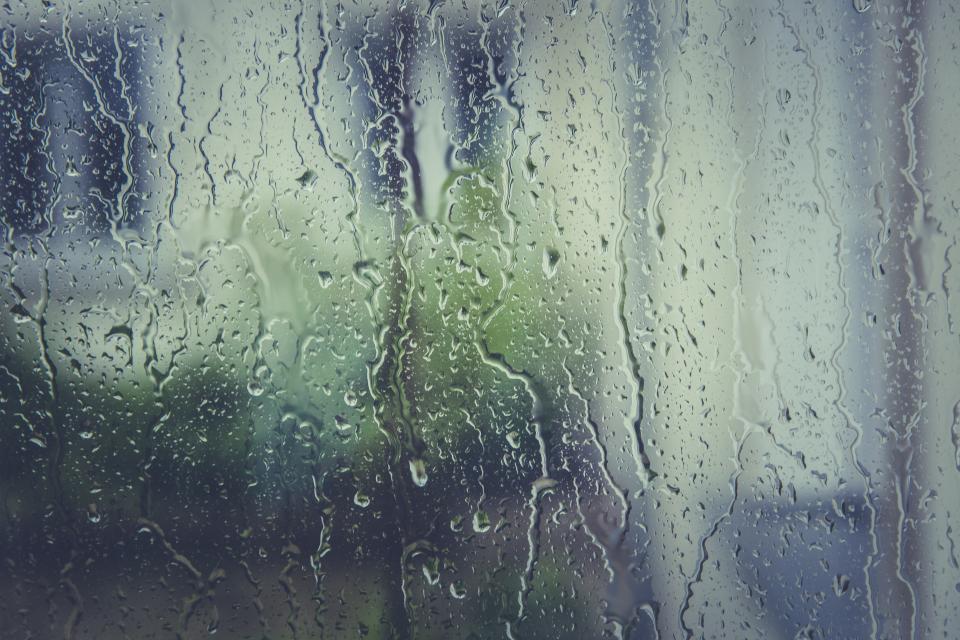Hard water stains or coatings on glass shower doors, windows, & drinking glasses look unsightly and might become permanent if left to accumulate for too long. To complicate things worse, soap & shampoo molecules might be attracted to the mineral deposits, resulting in soap scum. If outside windows are not completely dried after washing, or a fire extinguisher strikes the glass frequently, stubborn water stains might develop.
Hard water stains are widespread in households that are using well water in places where groundwater contains significant levels of elements like lime and calcium. Unfortunately, the stains will resurface after cleaning unless such water is purified or handled with a water softening system.
Hard water stains on glass can really be brought under control with regular washing if spotted early. While many professional cleaners will eliminate hard water stains from glass, moderate acids such as purified white vinegar or lemon juice and soft abrasives such as baking soda can generally be found in your pantry.
How Often Should Hard Water Stains Be Removed From Glass?
If hard water spots are a concern in your neighborhood, take extra precautions when cleaning glass fittings as part of your usual housekeeping practice. Eliminating excessive build-up will keep the minerals from permanently etching the glass. There is no way to return the glass to its former clarity once engraving begins due to the corrosive nature of the minerals.
Tools / Equipment
- Squeegee
- Clothes made of microfiber
- Brush with a soft bristles
- Latex gloves, an old toothbrush, and a small bowl
- Old towel as protective eyewear
Materials
- Refined white vinegar
- Deionized water
- juice of a lemon
- Soda (baking)
- salt from the table
Commercial stain removers for hard water
Instructions
The cleaning procedures outlined below are progressively more severe regarding hard water stains on glass. If the first approach fails to remove the stains, proceed to the next. Read & follow the guidelines carefully if you decide to use a professional hard water stain remover. Because certain cleaners are more potent than others, always wear safety equipment and store and transport & dispose of cleansers.
Read More: A Detailed Guide About How To Reset Honeywell Thermostat?
Use White Vinegar That Has Been Distilled
Hard water minerals have created bindings with the glass surface, and purified white vinegar is a mild acid (acetic acid) that will assist break those bonds. Fresh lemon or lime juice (citric acid) can also be used in the cleaning solution.
Make a Cleaning Mixture
In a spray container, combine one part of distilled white vinegar or lemon juice, including one part of distilled water.
Spray the Solution with it
To catch drips, put an old towel there at the bottom of the glass panel. Spray the vinegar & water solution throughout the top of the glass showering door or window, starting at the top. Work your way down the glass with even rows until it’s completely wet. Allow the mixture to sit on the glass for at least 30 min while you work.
Mineral Deposits Should Be Scrubbed and Wiped Away
Appear at the beginning of the glass panel & wash away the mineral deposits using soft-bristled brushes or microfiber cloth. Circular motions should be used, and your brush or cloth should be rinsed frequently. And get into corners and all around the corners of metal trim, are using an old toothbrush. Wear rubber gloves to prevent your hands & safety glasses to avoid splatters to your eyes, even though vinegar is non-toxic.
rinsing and drying
Rinse the glass with fresh water that once hard water stains have been softened and removed. Start at the top and remove the majority of the water with a decent quality squeegee like those from Libman before drying thoroughly with a lint-free microfiber towel.
Cleaning products for glass
Your glass surfaces will shine with so many cleaning products available today. Natural odor-fighting products can be found at grocery, convenience, and retail stores to avoid troubling odors.
Use Distilled White Vinegar and Baking Soda Paste
Add the bicarbonate of soda as a moderate abrasive if vinegar alone could not remove the stains created by hard water. This paste can also remove water stains from drinking glasses and other glassware.
Vinegar should be sprayed over the glass.
To catch drips, place an old towel there at the bottom of the glass. Fill a spray bottle halfway with undiluted vinegar and spray the surface layer of the glass, starting at the top. Allow at least half an hour for the vinegar to work.
Make a Paste for Cleaning
To make a thin paste, combine one part of water with 3 parts of baking soda in a small basin. To keep the pasta from becoming too watery, it’s better to combine it in small batches.
Use the Paste
Spread the paste towards the challenging water-stained glass portions using a cloth or scrub brush. Usually, appear at the beginning of the area that requires cleaning & work your way down in a circular scrubbing motion. Scrub with an old toothbrush dipped in the past, but there are only a few stains.
Vinegar should be sprayed once more.
After you’ve administered the paste and let it dry for a few minutes, spray the area with undiluted vinegar. As the baking soda & vinegar react with each other, you should witness some foaming.
rinsing and drying
Clean the glass with fresh water and dry with a scraper or microfiber towel once the foaming has stopped.
How to Prevent Hard Water Stains for a Longer Time?
- To avoid hard water stains forming after showering or washing any type of glass, properly dry the surfaces.
- To prevent deposits from forming, clean weekly with a diluted vinegar solution.
- Sprinklers should be moved away from the windows to avoid splatters of hard water.
- To assist water sheet off of glass fast, use water-repellent materials.



